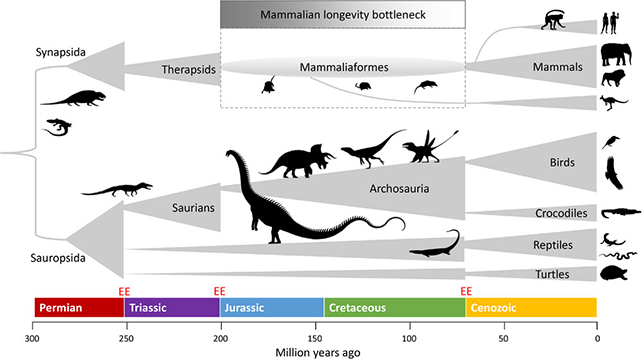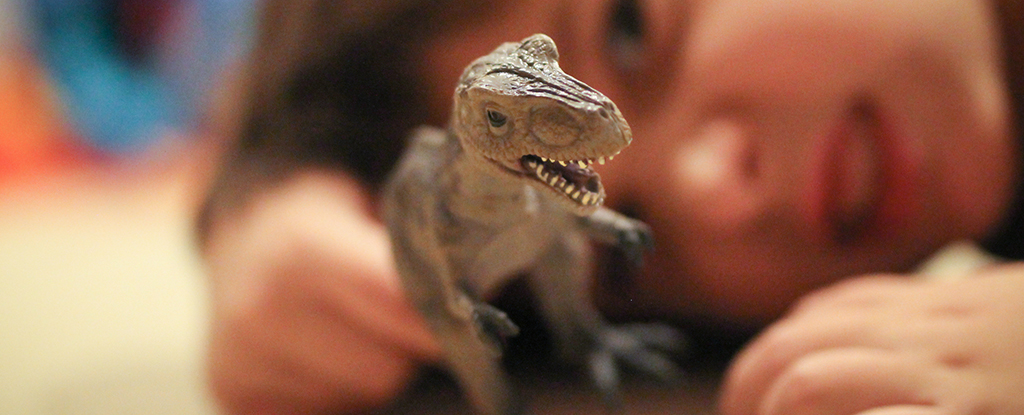One scientist is proposing a marked difference between the aging of mammals, including humans, and the aging of many species of reptiles and amphibians, which he attributes to the dominance of dinosaurs millions of years ago during a critical period of mammalian history.
Microbiologist João Pedro de Magalhães from the University of Birmingham in the UK explains his “longevity bottleneck” hypothesis in a newly published paper.
The hypothesis suggests that when dinosaurs ruled Earth, the much smaller mammals needed to reproduce quickly to survive, leading to the genetic selection for shorter lifespans in order to adapt to their environment.
According to de Magalhães, the long period of evolutionary pressure has an impact on the way humans age.

The published research notes that our very ancient ancestors in the eutherian mammal lineage appear to have lost certain enzymes around the time of the dinosaurs; enzymes that repair damage caused by ultraviolet light. This suggests that natural selection has resulted in mammals being more susceptible to damage caused by UV light.
Interestingly, even marsupials and monotremes lack at least one of the three UV-repair enzymes, known as photolyases. Whether this impacts their relatively shortened lifespans is uncertain.
Another interesting observation is that certain reptiles, including alligators, can keep on growing teeth all through their lives, unlike humans. It is hypothesized that this may be a result of genetic selection dating back hundreds of millennia.
de Magalhães states, “We see examples in the animal world of truly remarkable repair and regeneration. That genetic information would have been unnecessary for early mammals that were lucky to not end up as T. rex food.”
While some mammals do live to be one hundred years old or more, the question of whether they do so under the constraints imposed by their shorter-lived ancestors, or have somehow evolved to not be affected by them, remains unanswered and could be the target of future research.
Understanding the factors behind aging is crucial in the fight against age-related diseases, and the genetics behind the “longevity bottleneck” could offer valuable insights in this area.
de Magalhães also speculates that cancer is more frequent in mammals due to their rapid aging process compared to other species.
The research has been published in BioEssays.


